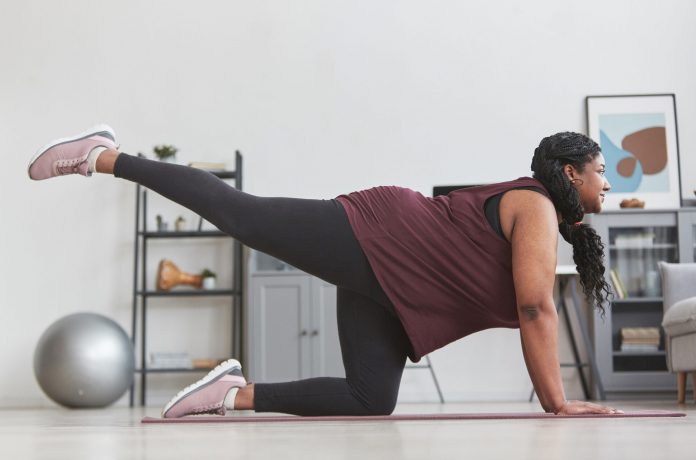If you’ve gained weight during the COVID-19 pandemic, you aren’t alone. The “Quarantine 15″—weight gain some folks have experienced since stay-at-home guidelines went into effect—is most likely due to the disruption in your daily routine.
“People’s habits have changed quite a bit since we’re spending more time at home,” said Donald Hensrud, M.D., medical director of Mayo Clinic’s Healthy Living Program. Those changes in habits can lead to health and medical issues down the road, he said. His suggestion? Find new habits.
“I want to make a point for some people: Getting enough food, getting enough calories and maintaining weight may be an issue,” he said. “Some people may have to worry about maintaining their weight not unintentionally losing weight. But for many of us, our habits have changed.”
He’s correct. For the past two months, fitness centers across the country have been closed. Though some of us continued staying active with hikes through our neighborhoods, biking, doing online yoga or other virtual fitness classes, a lot of us became more sedentary and burned fewer calories. “What people don’t think quite as much about is low-level activity throughout the day,” Hensrud said. “Even if we have a desk job, we have to walk at least to our car to get to work. We may walk throughout the day; we may walk to lunch. And, so, for spending time at home, that low-level activity may be causing us to burn fewer overall calories.”
We’ve also been eating more high-calorie foods..
“On the good side, we’re eating out less at restaurants,” he said. “However, many people are stocking up on frozen and processed foods that have a long shelf life. Many times, they’re higher in calories and less healthy.”
We also may have consumed fewer fruits and vegetables while we were staying safe at home because we were trying to make fewer trips to the grocery store to stock up on essentials, and fresh produce doesn’t last as long. “There are a number of reasons why we might be at risk for weight gain through our habits that have changed, both in burning activity and in consuming more calories,” Hensrud said.
A few pounds short-term aren’t that bad. “But the more weight we gain and the longer it’s maintained, the more it affects our health,” he said. “It’s more important for some people than others. For example, people who have diabetes or high blood pressure, just a modest amount of weight gain can increase their blood glucose and blood pressure.”
That’s why it’s important to develop new, healthy habits now. “You have to be a little proactive about this, and that’ll make it easier in the long term. Break out of your comfort zone,” Hensrud said, offering these tips:
- Craft healthier versions of old favorites. Instead of giving in to large amounts of comfort food, this can be an opportunity to eat foods we may not think of as healthy. Make burritos, bean burritos or even pizza. If you make it in the correct way, it can be a healthy food.
- Invest some time. Planning is key. If you plan ahead rather than just grabbing something at the last moment, you’re more likely to eat healthier meals.
- Raise your culinary skills. Cook more. You can make healthier versions than the ones restaurants deliver.
- Squeeze in activity. Even if it’s only 10-minute bursts of exercise, find ways to incorporate movement into your day. Teleworking? Walk around your living room while on conference calls. Play tag with your family in the backyard after dinner. Do a squat challenge while you binge watch “Insecure.”
“Eating healthy and eating well don’t have to be drudgery. It can and should be an enjoyable way to live,” Hensrud said. “If we can do that, we can better manage our weight and our overall health during this pandemic.”
And drop that quarantine 15 before it tries to hang around all summer.





